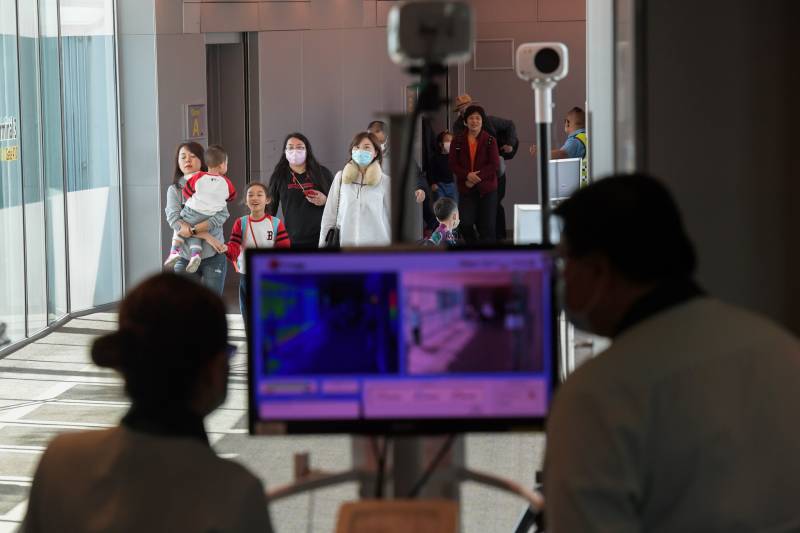Chinese state media said the city of Wuhan is stopping outbound flights as the country battles the spread of a new coronavirus that has sickened hundreds and killed 17.
This comes after the Centers for Disease Control and Prevention announced Tuesday the first detection of the virus in the U.S. in a man who had returned from Wuhan before the CDC initiated public health screenings at five U.S. airports, including Los Angeles International Airport (LAX) and San Francisco International Airport (SFO).
SFO expected one departing and one arriving flight from Wuhan Thursday. Both flights have been canceled, according to SFO spokesperson Doug Yakel Thursday morning.
State officials have shut down all transportation into and out of Wuhan, including the airport and train stations. Buses, subways, ferries and long-distance shuttle buses were also temporarily halted. The state-owned People's Daily newspaper said no one would be allowed to leave the city, while the government press office Xinhua News Agency said people would not be permitted to leave without a specific reason.
Symptoms of the illness include fever, coughing and difficulty breathing.
